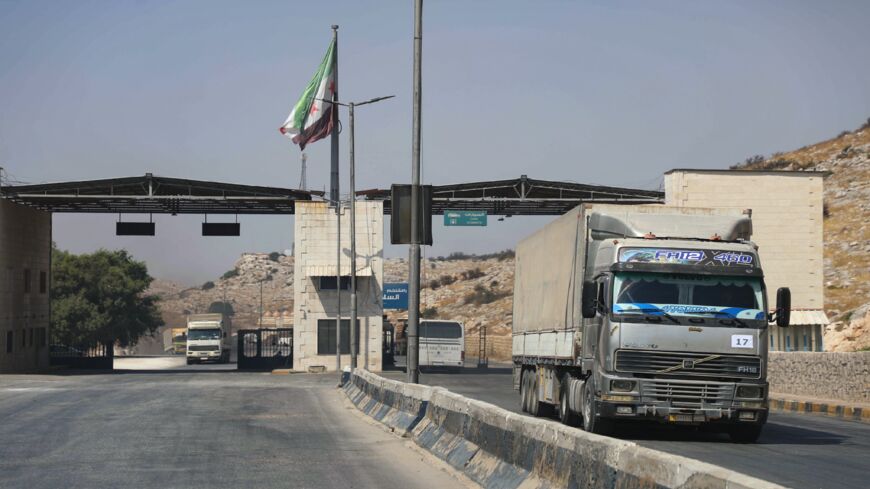AhlulBayt News Agency (ABNA): On Friday, the United Nations Security Council unanimously approved extension of a resolution drafted by the US, Russia, Norway, and Ireland about sending humanitarian aids to Syria over the borders. In 2014, the UNSC adopted the resolution that intended to deliver aids to militant-held Syrian regions from four border crossings. Last year however, the authorized border crossings were reduced to one with China and Russia objection.
The new Security Council extension will allow aid deliveries to go on for another year through Bab Al-Hawa border gate with Turkey. According to Russia, the resolution extended the authorization for six months, and it can be extended another six months.
The agreement comes as 15 members of the Security Council unanimously agreed to provide aid over two six-month periods after talks between the US and Russian ambassadors to the US. The second extension is tied to the report of the UN chief about how the aid delivery process is going on, and reportedly does not need a new vote.
The move drew strong criticism from the Syrian government, describing the move as a violation of the country’s sovereignty. Here is a question: Does the resolution really violate the Syrian national sovereignty and the international laws?
Syrian government reaction
Contrary to the support of US and Russian representatives for the extension of humanitarian aid across the Turkish border, the Syrian government representative strongly condemned it. Bassam Sabbagh, the permanent Syrian envoy to the UN, said: "We are opposed to this politically-motivated mechanism that is a violation of the Syrian territorial and sovereignty integrity and has already failed to guarantee that the aids will reach the deserving people not the terrorists. The Russian and Chinese envoys tried to focus on aspects that are meant to improve the humanitarian conditions and deliver aids to the genuinely suffering people inside Syria, but the Western countries have ignored these aspects and focused on the mechanism delivery, which serves their agenda. This demonstrates their ignorance of the Syrian people suffering and continuation of violation of our country's sovereignty and blockade against people."
Aid delivery; from where and by who?
At first glance, the resolution may look peaceful and humanitarian. The fact is that since the beginning of 2014, when the resolution was adopted by the Security Council, the aid sent by the West has not been provided to the Syrian civilian population. The main purpose was to provide aids to the citizens of crisis-hit regions who were incurred damage in the war, but in practice what have been seen so far is limited aid to areas controlled by terrorist groups. In fact, over the past few years, the US, Turkey, and European countries have sought to send humanitarian aids to Syria through the border crossings, but Syria's allies, particularly Russia and China, have opposed this approach and stressed that help should be distributed through Damascus, otherwise it is against the territorial sovereignty of Syria.
The delivery operation will continue for an additional year through Bab Al-Hawa border gate. This means that Ankara will have a direct supervision over the mission. But the question is that to whom and what forces will Turkey give these aids? Since 2016, Turkey occupied parts of the Syrian territories and supported terrorist groups at various levels. Presently too, its support to the extremist groups in Idlib makes the Syrian province the world's biggest stronghold of foreign-backed terrorists.
Undoubtedly, Ankara's control over the Bab Al-Hawa crossing, which in turn makes it control the aid flow, will turn all seemingly humanitarian aid into a source for strengthening terrorist groups in Idlib and elsewhere. In the meantime, it is noteworthy that many of the terrorists present in Idlib are foreigners who have no sense of belonging to Syria, so it can be boldly said that aids delivery through Turkey faces structural problems and aids do not reach the deserving people. The aids majorly go to Idlib as the largest concentration center of the terrorists that has been under Syrian forces' encirclement since 2017. So, sending the aids to them is a move aimed at giving them lifelines.
Setting up roadblocks ahead government’s full control over the country
Currently, the Syrian government controls around 85 percent of the country's territories, and tries to gain full control in the near future. Along with intention, President Bashar al-Assad is dealing with reconstruction, refugees return, normalization with the neighbors and Arab world. But the West, led by the US, goes to great lengths and closes its eyes to reality to paint the Syrian government illegitimate. The Western countries, under the excuse of inefficiency of the Damascus government which was proven wrong by the recent presidential election in which Assad won, seek to force the course of developments out of the government hands. In other words, the West cannot and do not want to accept the fact that their plant to Syria split and regime change has failed and it is the Iran-led Axis of Resistance and Russia that have turned out winners politically and militarily. In general, taking the aids process out of the central government hands is an attempt to paint President Assad administration illegitimate, for the final goal of restoring the sovereignty of the central government over the whole country.
/129

